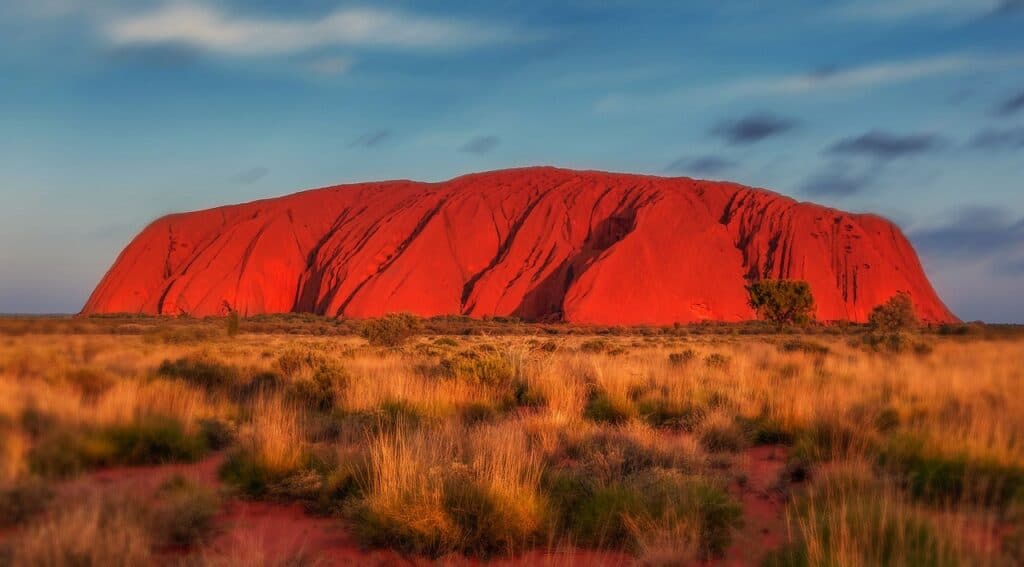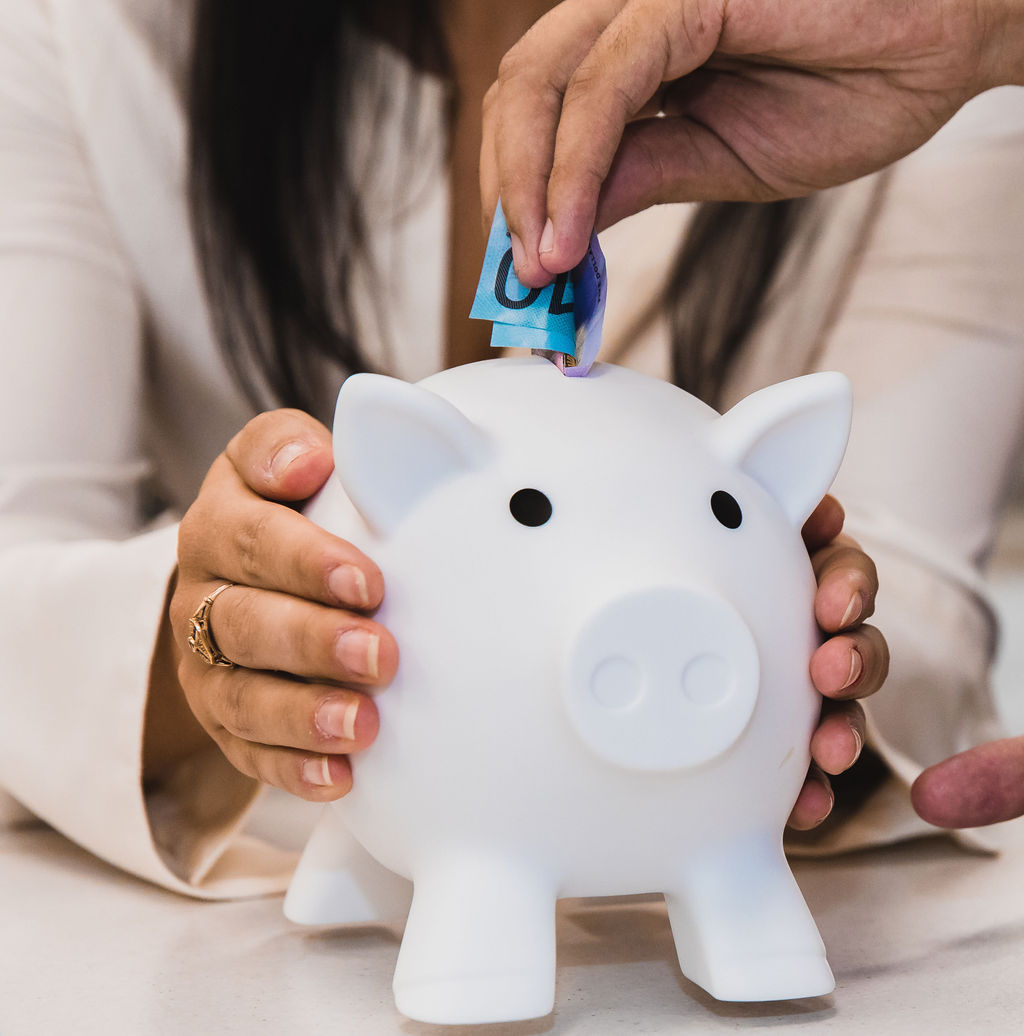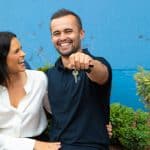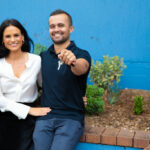The young Indigenous woman helping to drive the Uluru Statement
Allira Davis and Larisha Jerome
- Career & Business, Home Ownership, Money Lessons, Womens
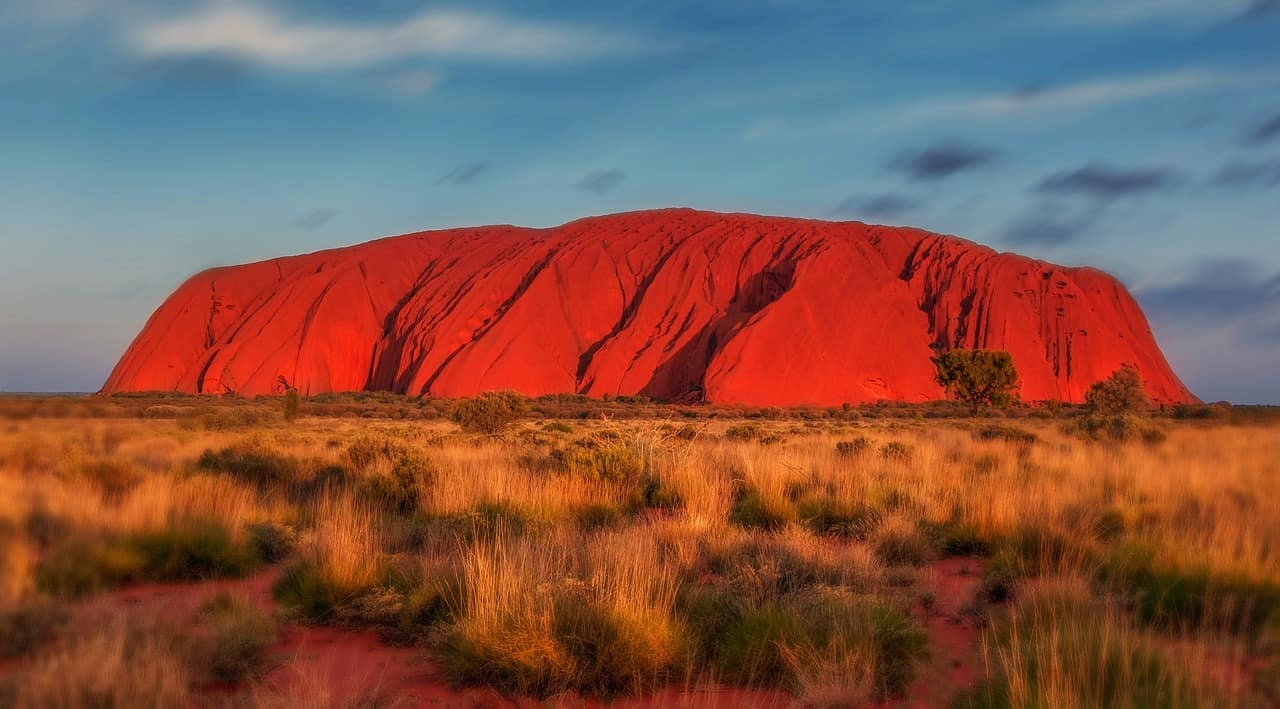
In this inspiring conversation, proud Cobble Cobble woman and co-chair and youth manager for the Uluru Youth Dialogue, Allira Davis, talks money goals and the importance of the Uluru Statement of the Heart with the First Nations Foundation’s Larisha Jerome.
This is a modified transcript of an episode of RBW: A podcast sharing Aboriginal and Torres Strait Islander women’s stories. To hear more, click here.
Allira: My name is Allira Davis, I’m a proud Cobble Cobble woman from the Barungum and Birrigubba nations, South-east Queensland. I am also a proud South Sea Islander woman as well. I grew up, in Logan on Yugambeh Country and actually moved down to Canberra for about five years on Ngunnawal country and then I’ve moved back home. So, I love being with the family and friends but yes, it’s been good.
Building a career as a young Indigenous woman
Larisha: Thank you, so tell us all about you and your previous roles that have led you to become the Uluru youth manager.
Allira: As I said before, I moved down to Ngunnawal country about five years ago into 2016, and I was out down there for a cadetship, an Indigenous program. I was in the Attorney-General’s Department.
I was in there for about a year and a half and I think at that point that’s when the Uluru dialogue started. So I actually attended the Brisbane Dialogue. I unfortunately didn’t attend the Constitutional Convention. However, my commitment and support was still very strong after all the dialogue happened and after the Uluru Statement got gifted to the Australian people.
Since then, after the Attorney General’s Department, I was in the private sector, working at Ernst & Young, really just building my skills on a lot of different areas and sectors. I was also working in the Indigenous sector practice. And then about, I think, six months or eight months ago, I got a full-time gig with the Uluru Statement from the Heart, working as a youth manager under the Uluru Dialogue. [It’s] under our senior leadership and cultural authority, which is very exciting, because I was volunteering for about three or four years since the Uluru Statement was gifted.
It was a lot of volunteering, but it was all worth it. Now I’m here doing my thing with Uluru youth and really trying to get our First Nations voice enshrined in the Constitution.
Larisha: So, tell us a bit about your work on the Uluru Statement. What went into building that network of First Nations youth from all around Australia?
Allira: Yes, so it actually began in 2019, my co-chair, Bridget Cama and I, met at a senior leadership dialogue, which was held in Cairns and that happened frequently. They just discussed where they wanted to go with the Uluru Statement and the three reforms to voice, treaty, truth and just planning it out, very privileged and grateful to be in front of all those Indigenous leaders.
But we thought, you know, there was a kind of something missing, we thought there was a young people that was missing that we wanted our voices heard because if you think about it, our future is basically on the line.
I think this structural reform, to have a voice; about having the First Nations voice on the Constitution is, you know, it’s our future.
And I think we need we definitely needed young people in that room to have their say and have them heard. So that’s when we created the Uluru Youth Dialogue. At the end of December 2019, we actually held our Uluru Youth Summit with over 60 young people around the country. We made it kind of fair and the geographical representation and gender representation as well. And we got them around just to basically explain what the Uluru Statement is, its reforms and the legal and political aspects of it, which is good because, you know, it was a three-day summit, but the first day was very information overload. But the second day, by the second day, they digested the information and they came back to us with amazing actions that they can do in their communities. And then the third day, we went out to Yarrabah. So, 40 minutes out from Cairns and we just put our feet on country and just kind of honed in on the purpose of why we’re here. And then obviously COVID hit, and aunty rona hit and it was very, it was hard to navigate through, I guess, engaging with our youth, but I think we’ve done alright. You know, people have stayed by us and really believed in us to, you know, stick by the mandate of the Uluru Statement.
Building money skills
Larisha: And Allira, you’re still quite young yourself personally, do you have any financial goals and what are you doing about them?
Allira: I actually never used to have any financial goals. However, now I’m really trying to obviously being when I was younger, I didn’t really concentrate on my finances. I was probably, a lot of young people don’t. But yes, I think being with my ex-partner; he definitely showed me how to save and what the value of money is. And, you know, my ex-partner was white, so he was a non-Indigenous man. So it was kind of like freaky to see the different side of financial aspects of how you do things. And for us we, money’s not a problem, like it is a problem, but it’s like if your mum need money, like if your aunt needs money like you give it. So whereas you know on a non-Indigenous point of view, it’s about investments, it’s about trying to what’s on the market, you know, it’s all like that big high level talks. So now I’ve understood it more and you know, I’m trying to save for a house. I’m trying to save for a car. It’s just thinking towards a future that’s one thing you told me is making sure that you are a few steps ahead and you know it might be alright to live in the moment for now but saving for the future and saving for the nicer things in life is really important and it’s really key to understand that because I think some of our mob, we think, oh yes, like, you know, let’s live in the moment, let’s do this, let’s go get a drink, whatever. But it’s those little things that kind of affect you, you know, till the next payday. So just trying to plan six months in advance of what you’re trying to do.
But yes, definitely try to have savings, trying to save for a car and just really, yes, think of future things that I can invest in or enjoy for myself.
Larisha: And how important do you think it is for us, young mob to have financial literacy education?
Allira: Oh, it’s so important, like, I don’t think people explain it as especially as, you know, Black fellas too, we don’t like money. It doesn’t bother us like, yes, we need it, but it doesn’t really bother us because, you know, we have family, we have friends, we have loved ones. Our morals can be completely different to a non-Indigenous person, but that’s why we have big families too.
So, I think it’s very important and I think people should – especially our mob – should learn it at a young age of, you know, how successful you can be with being financially stable and even just being financially stable is a goal. Right now, I feel like I’m financially stable, but that took years of practice and savings and paying off debts and paying off loans. And, you know, and I’m not afraid to say that because I’m in a good spot now.
Five years ago, I was struggling. I was, you know, trying to live from paycheck-to-paycheck. But it’s just about yes, understanding your financial priorities as well and yes really thinking of what you can do for your future.
Larisha: I love that. And what do you think is different now about the way our generation understands money and building wealth?
Allira: I don’t think it’s necessarily different. I feel like it’s probably similar to what our parents did back in the day. I mean, obviously, the market is a lot more expensive than what it is like the house market, the housing market. But, you know, that’s just change is inevitable. Things, prices are going to go up, the economy is going to go up like we just went through a whole; we’re still going through a whole pandemic. So everything’s going to get affected.
But I think we have more resources now as young people as well. And, you know, people are making starting businesses and understanding where they can go with that. So it’s still, I think, very important to learn about finances, but it should be kind of instilled in our brains like when we are in primary school, because that’s what they do with, you know, non-Indigenous people, which is kind of what we want for Uluru statement.
It’s like we want to push people to be the best that they can be. We want to push people to have the same opportunities as non-Indigenous people. So even, you know, having financial programmes that help our people to buy their first home or buy their first car on their own without a loan and how to save and whatnot, because saving, it takes a lot of willpower to do that. And I give it to people who can save. But sometimes Black fellas, we don’t have the opportunity to do that because we have to look after our family. So just even understanding that, I mean, even having like saving $20, saving $50, like that’s a start. It’s like when you quit smoking, like it’s a start, you know, so I think it’s just baby steps.
Larisha: So Allira, are there any money mistakes that you’ve learnt along the way and any tips or advice that you would give a young person?
Allira: I’m just thinking of my younger days when I just used to go out like Thursday, Friday, and just be like, you know what, whatever I can do this. I’m young; I’m living in the moment, which is completely fine. People go by that mandate. It’s fun.
But I think like one big tip is obviously thinking of the future. You know, as you said before, understanding that like us, we can own homes, you know, we can own our own cars. So having those goals in place that it may not seem realistic because when I first wanted to save, I was like, oh, like it’s not even really like I’m not even going to do that. Like, I’m not even going to get a car. I’m not going to get a house. Like, it’s no, I, it’s not in my, I don’t know, future, but I think you just have to really hone in on writing your goals down and writing your future plans down. And I think that’s one big tip.
Also, it just takes baby steps. It’s actually funny that we’re talking about finances, but I’ve actually paid off my loan for this is a bit personal, but I don’t care because I’m very proud of myself. I’ve paid off all my loans that I had when I was younger and I’ve paid it off. I paid off on Friday, so I’m very excited about that. But there is an end goal. You know, there is an ending and it’s a good ending, too. I mean, it takes hard work and a lot of willpower to do it. But I’m very proud of myself. And, you know, all I have is just I have to pay off some other bills here and there. But I’m like, I’m debt free, which is like, oh my God, I’m going to get emotional. It’s like, you know, it’s crazy.
Editor’s note: This conversation was recorded prior to the Federal Election in May, 2022.
Let us know if you liked this article
Let us know if you liked this article


